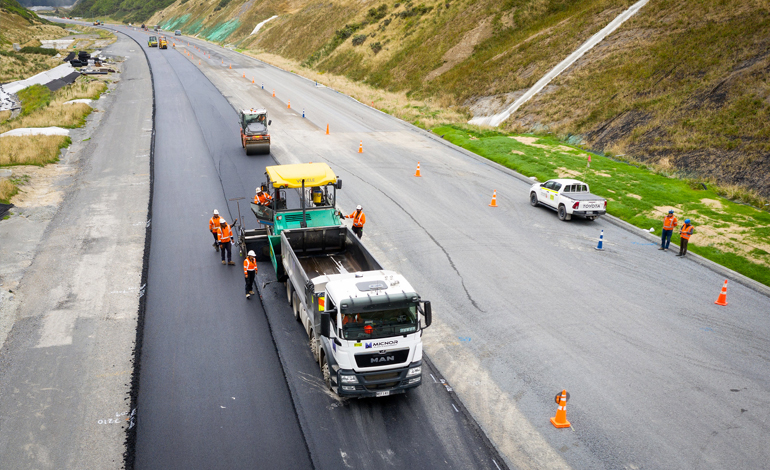By Peter Silcock, chief executive, Civil Contractors NZ.
Global supply shortages, snap Covid restrictions and some of the worst disruption to shipping since the Second World War.
That’s the unprecedented situation Kiwi civil construction contractors are dealing with, and it’s putting huge pressure on profit margins and the ability of contractors to ensure the sustainability of their businesses long term.
Over the past few months, the prices of steel products here have jumped by 15 to 21 percent; concrete and cement products have gone up seven percent; and prices for timber products have increased between six and 20 percent. This is on top of construction cost inflation of 4.5 percent in the year to June, before the most recent round of lockdowns hit.
Unsurprisingly, the escalating cost of materials and the disruptions caused by the global pandemic are hitting contractors in the pocket – particularly if they have not provided for them in their project pricing.
Almost half of respondents (45 percent) to this year’s CCNZ Teletrac Navman Construction Industry Survey identified “fluctuating costs” as a challenge facing the industry, up from 15 percent in 2020. It now ranks second only to “skill and labour shortages” on the list of the most common challenges faced by companies in the construction industry.
So, what is a smart contractor to do?
First, it’s more important than ever for contractors to ensure contracts signed with clients include a “cost fluctuations” clause.
Such a clause might allow for annual indexing of pricing against agreed cost indices, as well as a process for claiming cost fluctuation adjustments monthly. The clauses in the Standards New Zealand’s NZS3910 Conditions of Contract for building and civil engineering construction provide helpful wording that can be incorporated into contract terms.
Taking steps to manage cost fluctuations is critical for longer contracts, particularly maintenance contracts, but it’s worth considering for shorter contracts as well. At a time of unprecedented uncertainty, contractors should do everything they can to socially distance themselves from fixed price contracts without any mechanisms to deal with cost fluctuations.
Another key consideration in the current climate is tender validity. With the global and domestic situation changing daily, contractors should be wary of guaranteeing the validity of the pricing in their tender bids for extended periods.
Contractors should be prepared to push back if a client requests a price on a tender be guaranteed for six months or 12 months. Even the industry standard of three months holds a degree of risk now.
Fortunately, some of New Zealand’s large infrastructure managers are recognising the risk and acting. The Ministry of Education has issued guidance to contractors working on its projects, stating that it is willing to accept claims for price increases in certain materials without the need for contractors to evidence those price rises to Covid. The Ministry says this has been done “in the interest of fairer risk allocation” and to reduce the administrative burden on both parties.
The Transport Agency is also stepping up and has begun a process of reviewing the price indices it uses to measure cost fluctuations to ensure they accurately reflect the fast-changing prices of materials commonly used in roading projects.
These are mature approaches; it’s in nobody’s interest if contractors get into financial strife mid-project, or if a project is delayed due to a dispute over the costs of materials. They also align well the principles outlined in the Construction Sector Accord, which was launched in 2019 as part of a combined effort by government and industry to transform the construction sector.
A key tenet of the Accord is that risk should sit with those best equipped to manage it. Given costs of materials are largely outside of the control of contractors, it would not be fair for clients to expect a contractor to agree to a fixed-cost contract in the current climate, or to demand an extended period of tender validity.
Making the case for a fair contract during tender negotiations is beneficial to clients too. Not only will fairer terms attract more bids on tenders, but they will also reduce the risk of contractors going belly up mid-project.
Reducing the amount of crystal ball gazing required of contractors is likely to result in lower overall project costs as contractors will no longer need to pick a number out of the air when pricing potential future cost escalations into a bid to manage the risk.
When we look at it like that, a more collaborative approach to managing cost escalations in infrastructure contracts makes obvious sense and is a win-win for industry and clients alike.


Parting words from Jeremy Sole- a final column